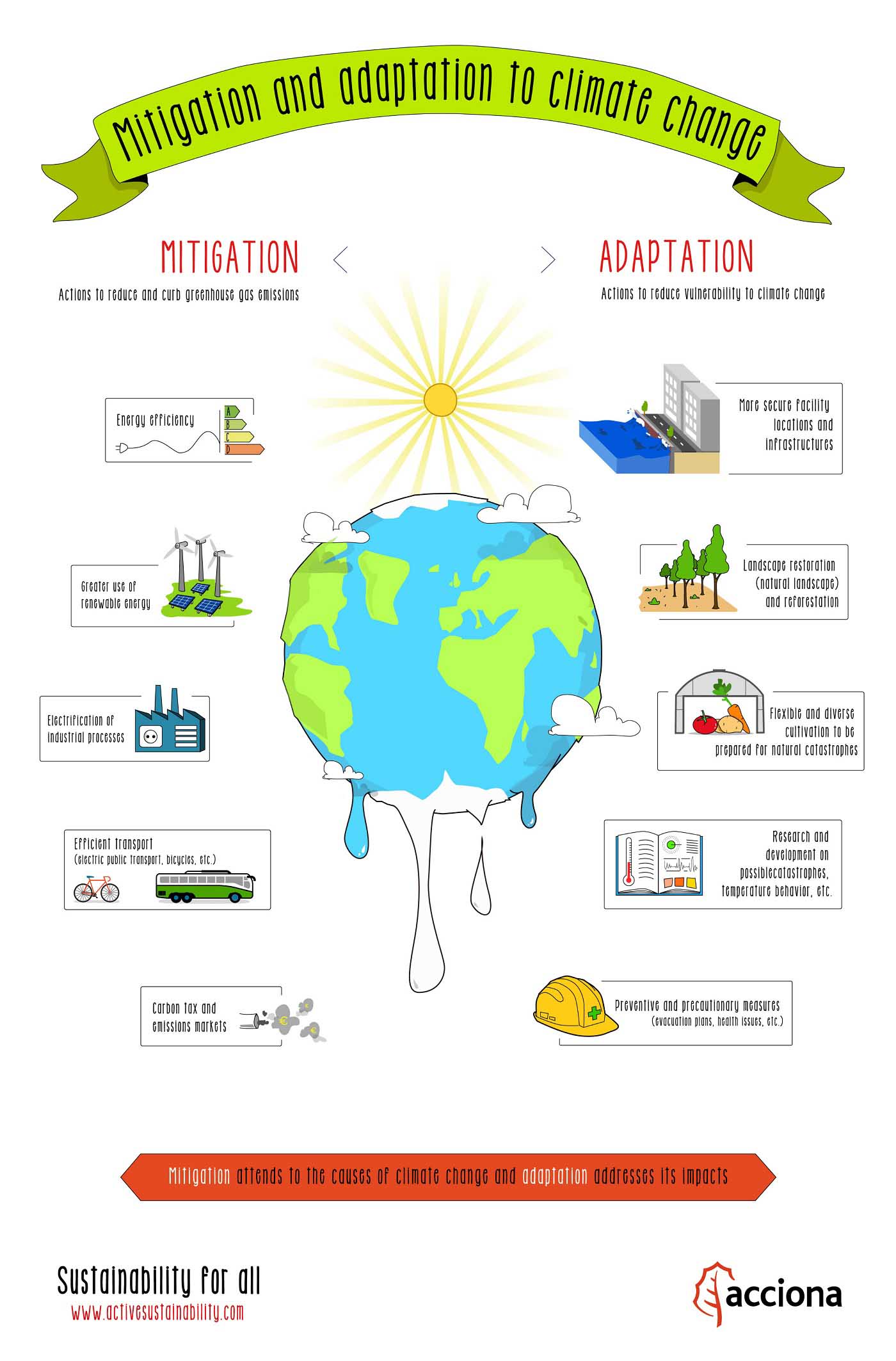
When it comes to tackling climate change to prevent the impacts it causes in the different systems of the planet, the human being applies two types of measures: mitigation and adaptation.
Mitigation measures are those actions that are taken to reduce and curb greenhouse gas emissions, while adaptation measures are based on reducing vulnerability to the effects of climate change.
Mitigation, therefore, attends to the causes of climate change, while adaptation addresses its impacts.
How to mitigate climate change?
These are some of the mitigation measures that can be taken to avoid the increase of pollutant emissions:
- Practice Energy efficiency
- Greater use of renewable energy
- Electrification of industrial processes
- Efficient means of transport implementation: electric public transport, bicycle, shared cars ...
- Carbon tax and emissions markets
Adaptation to climate change:
In terms of adaptation measures, there are several actions that help reducing vulnerability to the consequences of climate change:
- More secure facility locations and infrastructures
- Landscape restoration (natural landscape) and reforestation
- Flexible and diverse cultivation to be prepared for natural catastrophes
- Research and development on possible catastrophes, temperature behavior, etc.
- Preventive and precautionary measures (evacuation plans, health issues, etc.)
In this infographic you can learn what are the measures of adaptation and mitigation to climate change
https://www.youtube.com/watch?v=QUegpxhMuQ4
- Teacher: Dr Madhu V